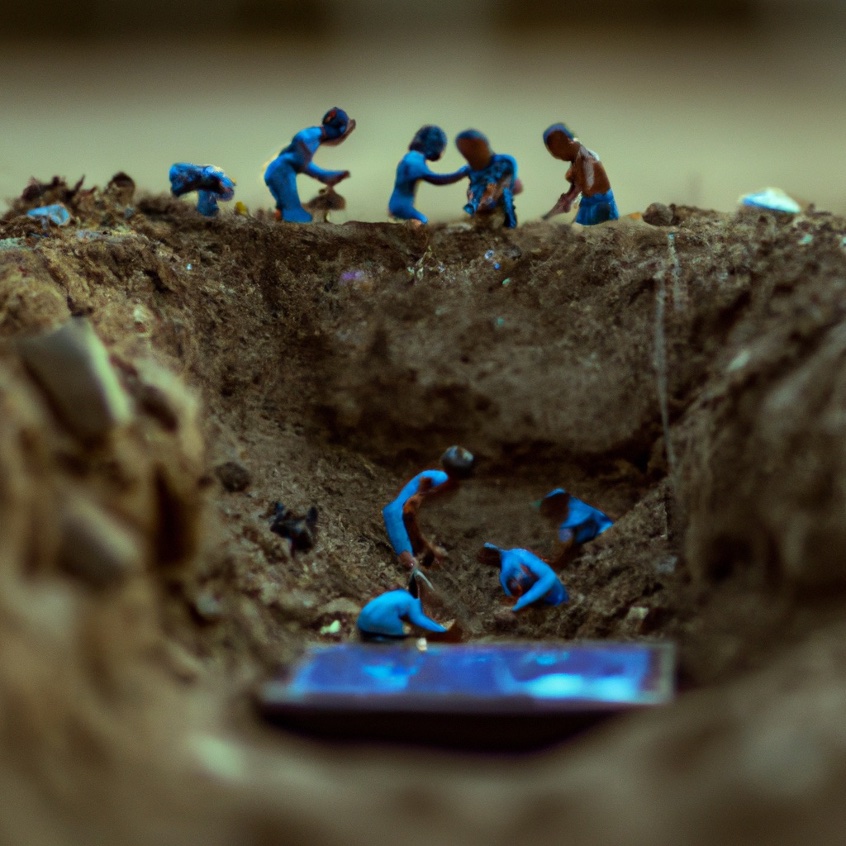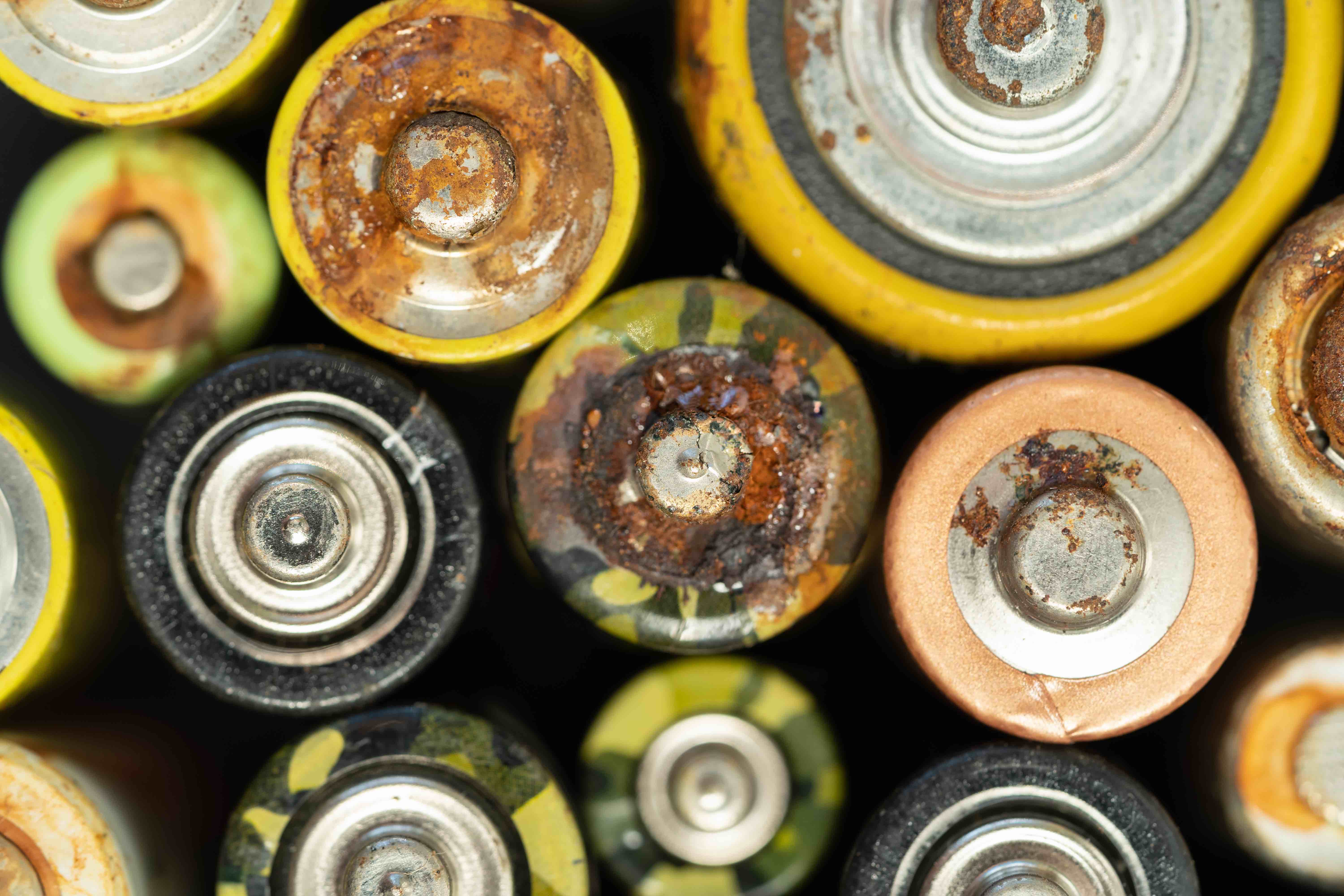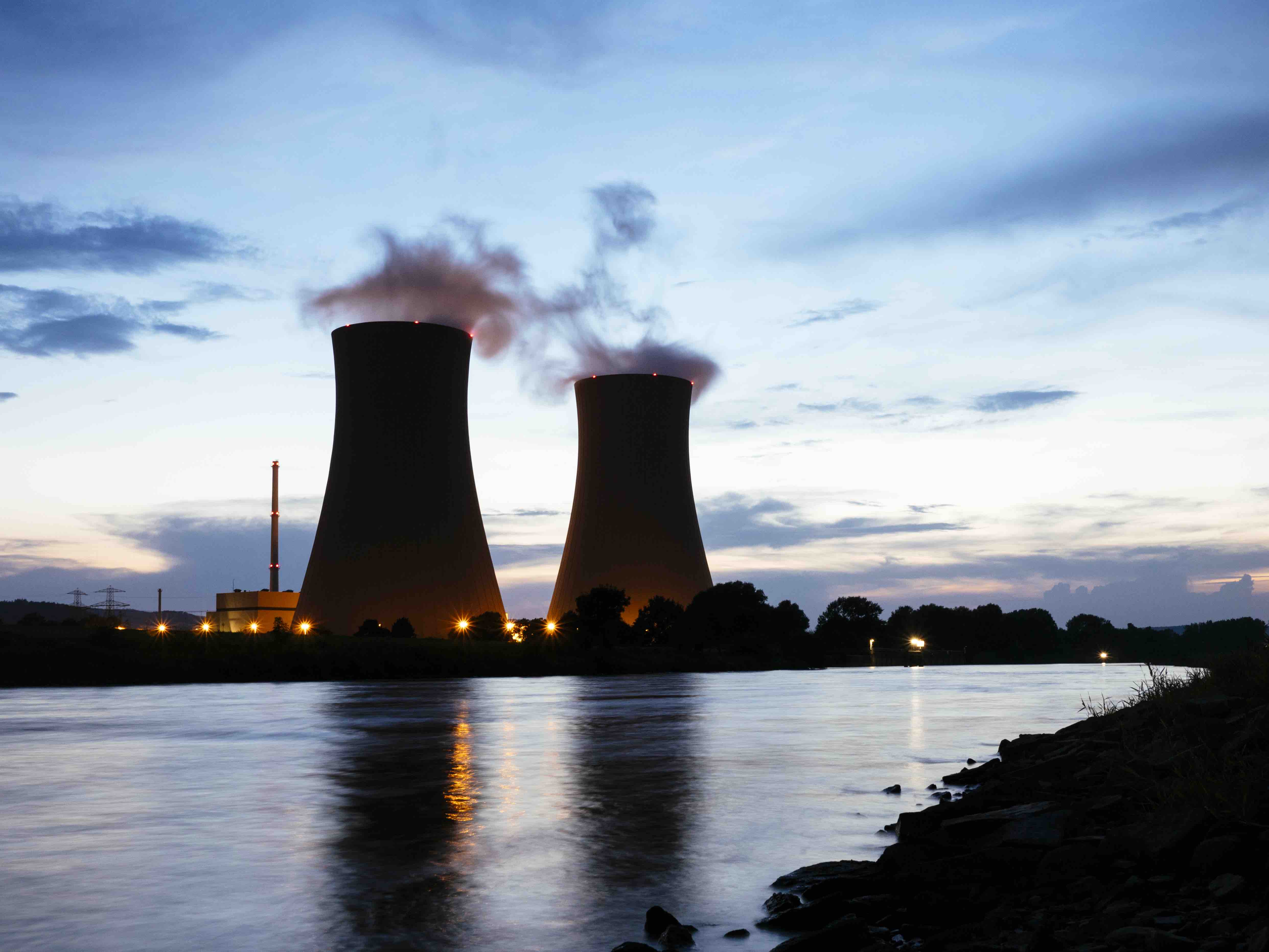
What is Cobalt Mining?
Cobalt mining is extracting a shiny, silvery-gray metal with a blue tinge from the earth’s crust. Cobalt is a metal used in various industries, including aerospace, electronics, and energy. Cobalt is a crucial ingredient in manufacturing rechargeable batteries, providing optimal stability and energy density. Cobalt enables batteries to store more charge and operate for longer durations without hazards. Without cobalt, the frequency of charging smartphones and electric vehicles would increase significantly, and the battery life could be at risk of catching fire.
The True Price of Harvesting the Blue Gold
Cobalt obtained from DRC is inherently linked to every degree of maltreatment and suffering, including a child and forced labor, dangerous working conditions, inadequate compensation, physical harm, death, and extensive ecological damage to the soil. It is estimated that 2 million people are employed in artisanal mining, which is more than five times higher than people working in the industrial sector, according to DvelveDatabase.
The environmental impact of the cobalt mining region is unquestionably severe. Toxic waste contaminates water and land, leading to the loss of biodiversity. Since the size of mining sites is increasing, deforestation is a present problem giving no choice but to abandon people’s homes and enter this working environment.
How the Blood of the Congo Powers Our Life
Siddharth Kara shares his experience on the ground in a podcast, talking about his new book Cobalt Red: How the Blood of the Congo Powers Our Lives:
He inspected the majority of the mining sites in the mining provinces and the informal agreements for wages and working conditions. He visited industrial mines where only machinery-equipped people are supposed to work, and no artisanal miners digging by hand should be present.
He shares his first-hand experience that 10,000-15,000 active tunnels, each 30-40 meters long, were dug by hand without any technical support or safety measures. Since there’s no safety equipment, tunnels collapse daily, killing workers, including children of all ages.
The workers are being suffocated by being buried alive or face unimaginable consequences and life-altering injuries due to exposure to cobalt.
In his book, Kara writes about a tunnel collapse he witnessed in 2019 that resulted in 63 people, including kids, being buried alive, with only four bodies being salvaged. The deaths were not claimed by anyone, and the accident was never acknowledged.
According to Mr. Kara, there are instances of children standing in toxic pools with their bare skin up to their knees and babies being carried in slings on their mothers’ backs while they work in pits. There’s a long list of health hazards that are associated with mining: headaches, painful skin conditions, cancer, respiratory illnesses, miscarriages, congenital disabilities, broken limbs, shattered spines, and toxic fumes.
Need for Cobalt Rises
The demand for cobalt keeps growing with the net-zero goals. The need for cobalt skyrocketed in recent years due to its use in high-tech applications such as electric car batteries, making it a highly sought-after commodity. An electric vehicle (EV) battery requires ten times more cobalt than a regular cell phone device. EVs continue to be more popular as a more sustainable alternative to traditional gasoline-powered vehicles, and cobalt is an essential component in the production of lithium-ion batteries that power EVs.
 Closeup of used battery with traces of rust and corrosion. Electronic hazardous waste concept
Closeup of used battery with traces of rust and corrosion. Electronic hazardous waste concept
By the year 2050 production of minerals, such as graphite, lithium, and cobalt, could increase by nearly 500% to meet the growing demand for clean energy technologies, as it’s stated in the World Bank report
At the bottom of the supply chain
The presence of cobalt in the DRC’s soil plays a crucial role in today’s economy, providing 74% of the world’s cobalt supply in 2021. Although profits of this industry do not go to the CDR people, it goes to foreign corporations and government officials. The mined cobalt enters the supply chain by being sold on the ground and is being sold back to mining companies. This vicious cycle perpetuates the current status quo, with foreign entities reaping the benefits while the Congolese people bear the brunt of the suffering.
China dominates mining excavation on the ground owning 15 of the 19 primary copper-cobalt mining sites, as stated in The New York Times
The dangers of cobalt mining reveal how international corporations and governments have turned a blind eye to the abuses seeking to maintain access to this valuable resource. As consumers, we must question the ethical implications of our electronic consumption and demand accountability from companies profiting from these practices.
Each smartphone, laptop, or EV owner has contributed to the horrors Congolese people face. This harsh reality forces us to reconsider our role in continuing these unethical practices and our responsibility to drive change.
People deserve better, so looking for alternative components in battery manufacturing is crucial. Raising awareness about this issue is a crucial first step in catalyzing change and finding sustainable, ethical solutions to our energy needs. Recycled nuclear waste is an excellent alternative to battery production, offering longevity and stability without harming the environment or people.







